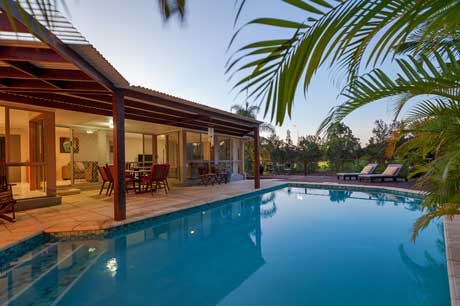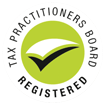You could be eligible for valuable holiday rental tax deductions if you own a property you use as a holiday rental
It usually takes a little time to see a profit but with holiday rental sites like AirBnB and others making holiday rental investments even easier, a growing number of property owners have turned their attention towards this end of the rental market.
Owners find it less stressful and less time consuming to get a property managed by an agent. Also, the frequent turnover of tenants often means more maintenance and repairs to fund than a regular rental property, so holiday rental properties can be expensive to run. However, higher rents, popular sharing economy sites and deductible expenses all help to make a holiday rental property – in a good location – a solid investment for a growing number of people.
Holiday rental tax deductions help to lower the overall holiday rental property costs, these are offset against the income you earn in rent. Expenses such as body corporate fees, maintenance costs, advertising fees and cleaning expenses can usually be claimed as a tax deduction.
At this point, it’s important to point out that the ATO keeps a close eye on these types of expense claims and they are very good at spotting false or “unsubstantiated” claims. So we’ll discuss some basic do’s and don’ts to help ensure you get the tax deductions you deserve for your holiday rental property, and that you claim all your expenses correctly.

Holiday rental tax deductions – the crucial tips!
Record keeping
It’s important that you keep a good record of every expense. Without a record of an expense, you can’t claim it, so failing to keep receipts or not keeping them in logical order could lose you thousands in tax deductions each year. You could also risk getting in trouble if you claim an expense that you can’t find a receipt for, should the ATO decide to review your return
Is my home eligible for tax deductions if it’s not always available for rent?
You can only claim holiday rental tax deductions for the period a home is advertised and available for rent (or when it is rented out).
Keep your expenses separated, remember not to include expenses for your personal use of the house. This is a common mistake that the ATO looks out for. You also need to be able to show how you calculated the claimed portion of a bill (more on that below).
So what holiday rental tax deductions can I claim?
Expenses you can claim as tax deductions for your holiday rental property include:
- Maintenance & repair costs
- Garden maintenance
- Management fees
- Advertising costs
- Utility bills (if applicable)
- Pest control
- Insurances (property and landlord insurance)
- Cleaning
- Body corporate fees
- Council rates
- Interest (on the funds borrowed to purchase the home)
- Depreciation of assets (if the items were purchased yourself)
- Capital works deductions
- …and more.
Remember, you can’t claim holiday rental tax deductions for any type of personal use such as letting it to family or friends.
When can I claim?
The rules and regulations for holiday rental properties are similar to general rental properties, in regard to claiming expenses. However, with a holiday rental you’ll need to divide your claimable expenses if your home is not genuinely available or used for personal purposes such as:
- When you rent it out to friends and family or colleagues free of charge .
- When you rent to family or friends and charge them ‘mates rates’.
- When you use the property yourself.
- If you voluntarily keep the property vacant and and deem it not available for rent.
Is my property actually available for rent?
The ATO keep a close eye on holiday homeowners who don’t genuinely try to rent out their property. A few indicators of this include;
- Unreasonably limited advertising, such as advertising only at work, to friends or outside common holiday periods.
- Unreasonable conditions, requirements and restrictions, which limit interest from renters.
- Rejecting or ignoring rental inquiries for unrealistic reasons.
The ATO may review these limiting restrictions to determine whether a property is genuinely a holiday rental or simply a private holiday home.
My holiday rental property isn’t advertised and available right now
If you keep the property for private use, you cannot claim any expenses relating to the upkeep or running of the property. You should hold on to your receipts regardless though as you’ll need to have those records to help determine your capital loss or gain should you sell the property in the future.
How do I split the property’s expenses between claimable rental property tax deductions and private costs?
As we’ve discussed, tax deductions only apply to the periods of time when the property is rented or available for rent.
For example, Allan and Jo own a holiday rental property on the Gold Coast.
This year their expenses for running and maintaining the property were $20,000 for the tax year. These expenses included interest payments, maintenance, cleaning, advertising and property management fees.
The market rent for the property is $500.00 per week. Throughout the year it was rented for 34 weeks, earning them a rental income of $17,000. It was advertised as available for rent, but vacant for 12 weeks during the year and over Christmas Allan and Jo holidayed in the property themselves for 4 weeks.
Allan and Jo’s property was either available for rent or was occupied by renters for 48 weeks out of 52 weeks.
So work out the rental property tax deductions as follows:
- 48 weeks divided by 52 weeks X $20,000 total expenses = $18,461.50 claimable expenses
- Allan and Jo claim $18,461.50 in rental property tax deductions between the two of them which amounts to $9230.75 each.
How to divide holiday rental tax deductions between two owners
The ATO is well aware of couples splitting income and deductions unequally to gain tax advantages so they actively keep an eye out for this behaviour with dual owners. So, if you share your property with a partner, you must claim deductions properly.
If partners own an equal share of a property, they should each claim an equal share of the expenses. If one partner owns 30% of the property, they should claim 30% of the expenses. It’s that simple.
Do I have to declare all the income I make off my holiday rental property?
Yes, you should include ALL the rent you receive from your holiday guests on your tax return. The ATO keep a sharp eye out for this kind of tax evasion and often have access to data help by third parties that you may advertise the property through. If you try to hide your income, it’s usually only a matter of time before you’ll be caught out. In general, aim to save about 30-40% of your rental income to cover your tax. This way, you’ll always have the money ready at tax time. Usually your deductions will lessen the amount of tax you pay but if you earn money in Australia, you should pay the tax needed to fund the services and urban initiatives that make it great – and continue to entice your tenants back!
Need to know more?
If you have any questions about including your rental property tax deductions on your tax return, please get in touch. Call 1300 174 689 or fill out our contact form. If you’re an existing client, simply log in to the client portal and live chat directly with on of our head office accountants. We’ll help you get it right AND claim all that you’re entitled to.
These tips are of general nature only. Speak to a qualified tax agent to get advice on the tax breaks that are relevant to your situation.
 Tax Agent
Tax Agent



